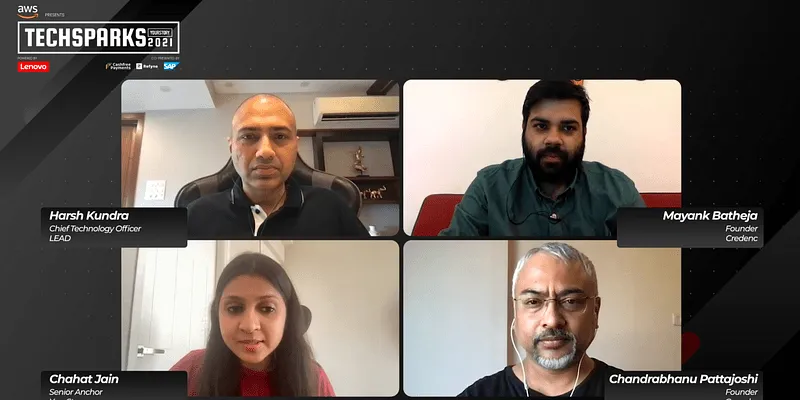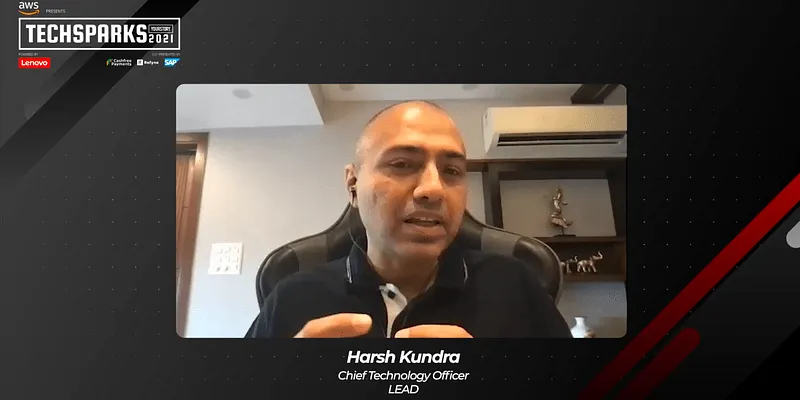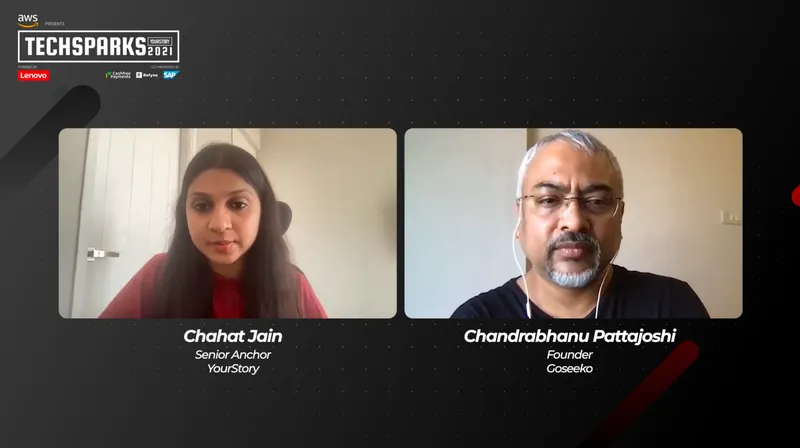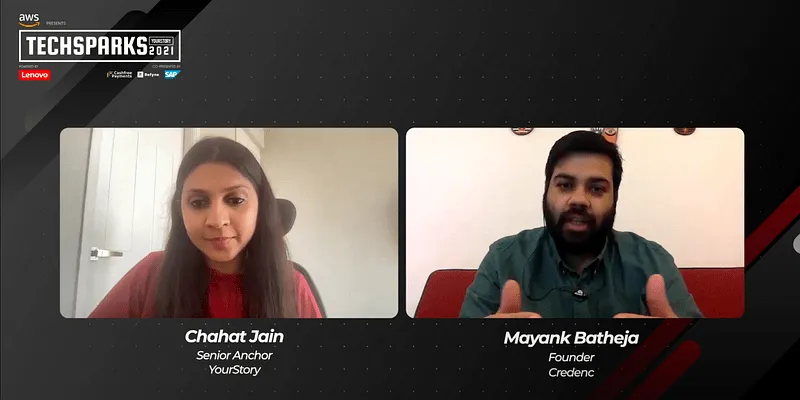Can edtech startups bridge massive gaps in India’s education sector?
At TechSparks 2021, Harsh Kundra, CTO, LEAD; Chandrabhanu Pattajoshi, Founder, Goseeko; and Mayank Batheja, Founder, Credenc, discussed the state of education today, the multi-layered impact of the pandemic, and the need for affordable education for all.
It’s a known fact that the COVID-19 pandemic and subsequent lockdowns dealt a severe blow to the Indian education sector.
While private schools in metros rebounded the quickest — adopting innovative technologies to provide students quality education during the lockdown — the marginalised and often neglected student population in India’s smaller cities and rural regions continue to be deprived of an education.
According to the Department of the State Educational Research and Training, about 30 percent of students in Karnataka have been deprived of academic activities since the pandemic struck, while 39 percent did not have any access to gadgets.
Based on these numbers, the question then arises — Can India provide affordable education to all? Is technology the key to solving this problem?
At TechSparks 2021, YourStory’s flagship startup-tech conference, Harsh Kundra, CTO, LEAD; Chandrabhanu Pattajoshi, Founder, Goseeko; and Mayank Batheja, Founder, Credenc, discussed the state of education today, the multi-layered impact of the pandemic, and the need for affordable education for all.

The gaps in the education sector
The COVID-19 pandemic created a variety of problems across the spectrum for students.
Mayank said younger students are not familiar with the classroom environment, what a teacher is supposed to do, and how they must conduct themselves.
College students, on the other hand, are dealing with a lack of structure. Shifting deadlines, admissions, and results have left them floundering, especially in Tier II, III, and IV cities.
The lack of structure and continuity in education has led to an even deeper problem, added Harsh. Students often miss out on learning basic concepts, which makes it harder for them to understand and progress to more advanced lessons.

He said, “What we are seeing in the last 18 months or so is that students are not missing one day or one week, but there is a multi-year gap of concepts missed, and that learning loss is taking a stronghold.”
He proposed, for schools to fill these massive gaps, remedial concepts and accelerated learning must be organised.
The same gap in continuity is also affecting teachers. When students come back to school, some are educated by parents, some by online classes, and some have not been able to take classes because of a lack of devices or internet connectivity.
Harish said teachers will have to deal with a heterogeneous classroom, with students coming from different points of understanding, making the situation difficult to resolve.
Can technology and innovation transform the education sector?
While technology does have limitless potential, the Indian education sector may not be ready for it, says Chandrabhanu.
At present, India’s schools and educational institutions are going through a mode of “catching up” — remedying the damage done by the COVID-19 pandemic.
He asserted innovation would only come during a time of stability, and the broken sector had five years of healing and organising to do before it could get there.

“This whole thing will skip a generation, I can assure you. We are all going to be startups who will build something valuable in five, seven, or eight years from now. No one can present a fancy new model of education overnight,” he explained.
Adding to this, Harsh said, today, India has close to 250 million students, and around one to two million students are using new-age learning methods.
As far as edtech startups are concerned, this is just the starting line.
Mayank added technology could not, at the moment, make education more affordable.
He said, “People have generally confused technology with making education cheaper and more accessible.”
India has an inherent suspicion of courses that are offered online —especially in Tier III and IV cities — where students, parents, and schools are still trying to wrap their heads around what technology can offer.
In fact, they question the quality of education offered by an online MBA course and the validity of the certification.
Funding and admissions
India has witnessed the first two COVID-19 waves, and the country is anticipating a potential third wave. Given this scenario, the panel discussed the state of funding and admissions in the education sector.
Mayank said there is a demand for financing for education across the board. Tier I and II cities understood the havoc wreaked by the pandemic and we’re quick to request funding.

Credenc, which offers educational loans, saw demand for funding increase dramatically in three key areas — study abroad for undergraduate courses, skilling courses, and supplementary courses.
Harsh said the pandemic cost many parents their jobs, and their children had to drop out of school or were moved to more affordable government schools.
“We think admissions will bounce back to the normal levels, fundamentally, because parents are interested and keen to get the best education for their kids, whatever may be their strata of income,” he added.
His biggest concern was what happened after admission and resolving the learning gap many students were facing.
Edtech startup LEAD combines technology, curriculum, and pedagogy into an integrated system of teaching and learning to create affordable private schools. It has accelerated learning programmes to help students bridge these gaps sooner than expected.
To log in to our virtual events platform and experience TechSparks 2021 with thousands of other startup-tech enthusiasts from around the world, join here. Don't forget to tag #TechSparks2021 when you share your experience, learnings and favourite moments from TechSparks 2021.
For a line-up of all the action-packed sessions at YourStory's flagship startup-tech conference, check out TechSparks 2021 website.

Edited by Suman Singh








